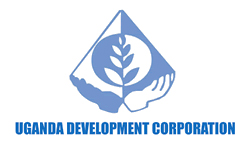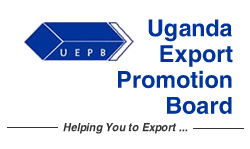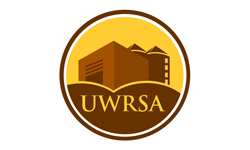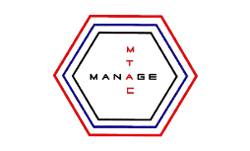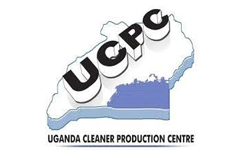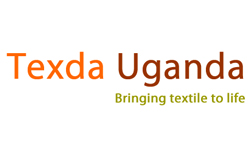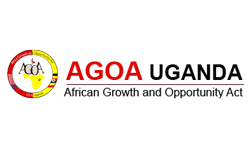Implementation
Codex Research Report
The Ministry of Trade, Industry and Cooperatives (MTIC) through the Quality Infrastructure Programme (QUISP) provides support to Uganda’s delegates in regional and international SMCA for a to ensure effective participation and advancing national positions in these fora.
The Ministry of Trade, Industry and Cooperatives (MTIC) commissioned a research study to prepare a thematic paper in areas of Food safety standards in relation to the Codex Alimentarius Commission requirements (Codex).
The study aimed at identifying and critically assessing the existing Codex standards covering the food products in Uganda and generating data on key parameters in the standards; the SMCA requirements for compliance to the standards; and suitability of such standards in industry and trade; and contributes to the domestic capacity in the trade policy analysis for preparation for various trade negotiations.Click here for the
The NSQP Policy
click here to read the National standards Policy :NSQP POLICY
Click here to read the: NSQIP implementation plan
The Ministry of Trade, Industry and Cooperatives (MTIC) through the Quality Infrastructure Programme (QUISP) provides support to Uganda’s delegates in regional and international SMCA for a to ensure effective participation and advancing national positions in these fora.
The Ministry of Trade, Industry and Cooperatives (MTIC) commissioned a research study to prepare a thematic paper in areas of Food safety standards in relation to the Codex Alimentarius Commission requirements (Codex).
The study aimed at identifying and critically assessing the existing Codex standards covering the food products in Uganda and generating data on key parameters in the standards; the SMCA requirements for compliance to the standards; and suitability of such standards in industry and trade; and contributes to the domestic capacity in the trade policy analysis for preparation for various trade negotiations.
Policy and Regulation Working Together To Promote Industry Competitiveness Report
QUISP contracted the Quality Assurance and Management Consultants to research and develop a report on the policy and regulation working together to promote industry competitiveness. The objective of the study is to assess whether the policy and legislative framework for adoption of food safety standards and SPS requirements promotes public health and gives industry a competitive edge. Specific objectives of this report include:
- Assessing the level to which the proposed policy and legislative framework for food safety standards and SPS requirements promote: local and international trade; public health; consumer protection; industry promotion; animal health; provides interventions based on risk analyses; provides a framework for improving market performance in food safety through provision of industry specific information OR use of voluntary / mandatory systems of traceability which result in incentives that encourage consumers choose safe food and thus reward producers for their efforts; farm to table’ approach supported by a risk based regulatory framework; provides a framework for identifying new hazards in the food chain and taking preventive action for their proliferation.
- Assessing the level to which the industry has been able to comply to the food safety and SPS requirements of various export destinations;
- Understanding the causes of industry non-compliance to food safety standards and SPS requirements as well as the possible interventions. Click here for Policy and Regulation Working Together to Promote Competitiveness Report
SMCA Final Report
An initial baseline study commissioned by the Ministry of Trade, Industry and Cooperatives (MTIC) established that Standards, Metrology, Conformity Assessment and Accreditation (SMCA) service providers in Uganda are constrained by mainly the lack of accreditation, proper equipment and competent personnel required to offer these services at an internationally recognized competitive level. This capacity needs assessment provides a systematic and participatory process for identification and understanding the major capabilities and weaknesses of the existing product quality control and safety system, pinpointed areas for improvements and identified options for intervention. It will help in ensuring that any capacity development initiatives in this area are demand-driven requirements, and build on existing capabilities. Click here to read;SMCA Final Report
A survey was commissioned country wide to establish the level of knowledge and awareness for Quality Infrastructure and standards. The survey covered the entire market including manufacturers, SMEs, Students and consumers. The objective of the communication strategy is to create awareness and promote the use of quality infrastructure and standards so as to improve the competitiveness of Uganda’s products, processes and service delivery systems in domestic, regional and international markets.Click here to read
Capacity Assessment
The Ministry of Trade, Industry and Cooperatives under the Quality Infrastructure and Standards Programme (QUISP) engaged Sunshine projects limited , management consultants to review the current capacities in Lead Agencies involved in standardization work. This study was to identify gaps and overlaps in the services offered in the standards and quality service providers and covering the quality and standards infrastructure.Click here to read
Government has over the past years formulated policies aimed at protecting the lives and health of humans, animals and plants; and improving the competitiveness of Uganda’s products. Among these is the Sanitary and Phyto-Sanitary (SPS) policy. MTTI chaired the task force and provided the secretariat for the SPS policy formulation process through conducting various consultations with relevant stakeholders in the publc and private sectors. The SPS Policy is aimed at creating the framework and guidelines for addressing SPS development aspects in a holistic manner; with a view to contributing to sustainable development, by providing opportunities for creating wealth through income generation and distribution, increased employment in order to enhance the competitiveness of Uganda’s agri-business sector:Click here to read the FINAL DRAFT SPS POLICY
QUISP Legal Framework
The Ministry of Trade Industry and Cooperatives contracted JN Kirkland And Associates and EK Consulting Group to write a report on the an assessment of the legal and policy framework for Standards and Quality Assurance Infrastructure in Uganda to provide a legal and regulatory analysis of the laws relating to standards and quality assurance in Uganda. The report is based on the personal research of the consultants, reviews of specialized literature and personal interviews with various stakeholders.

